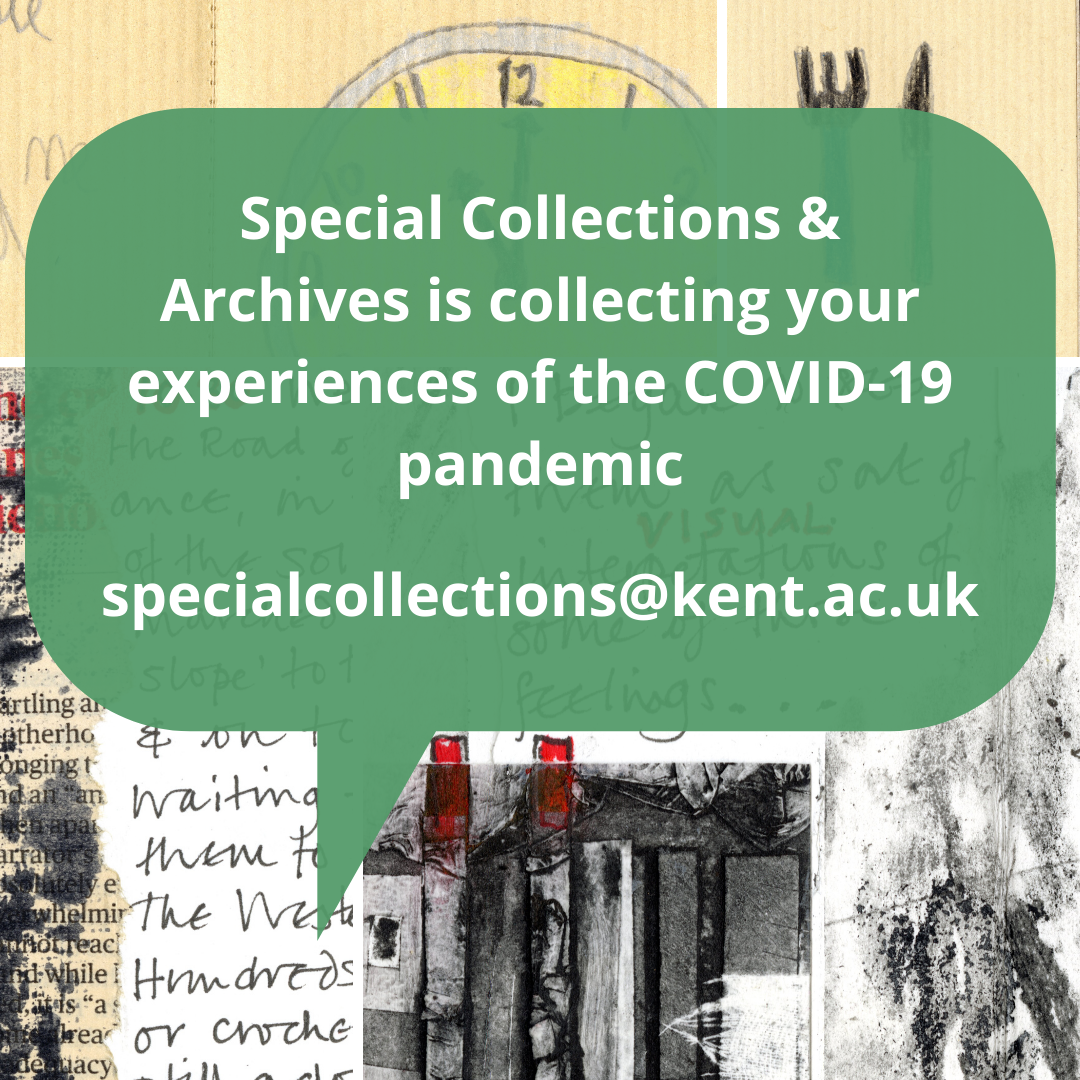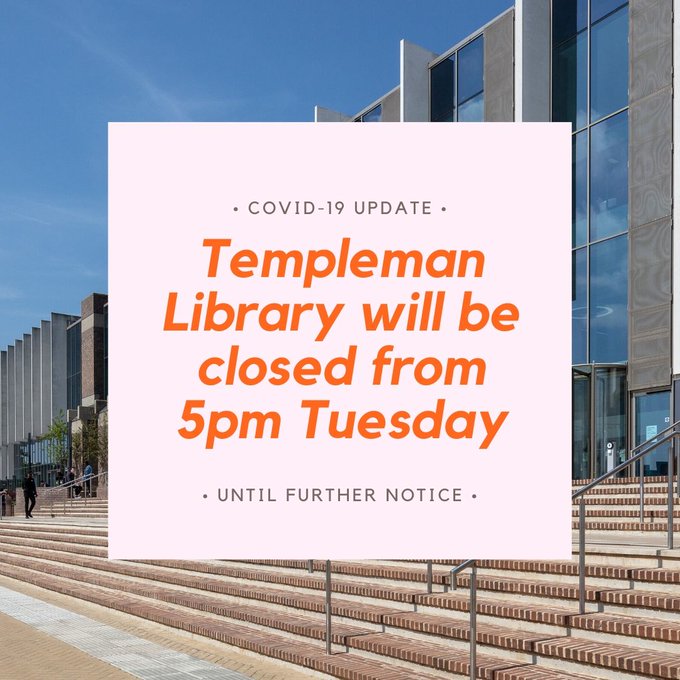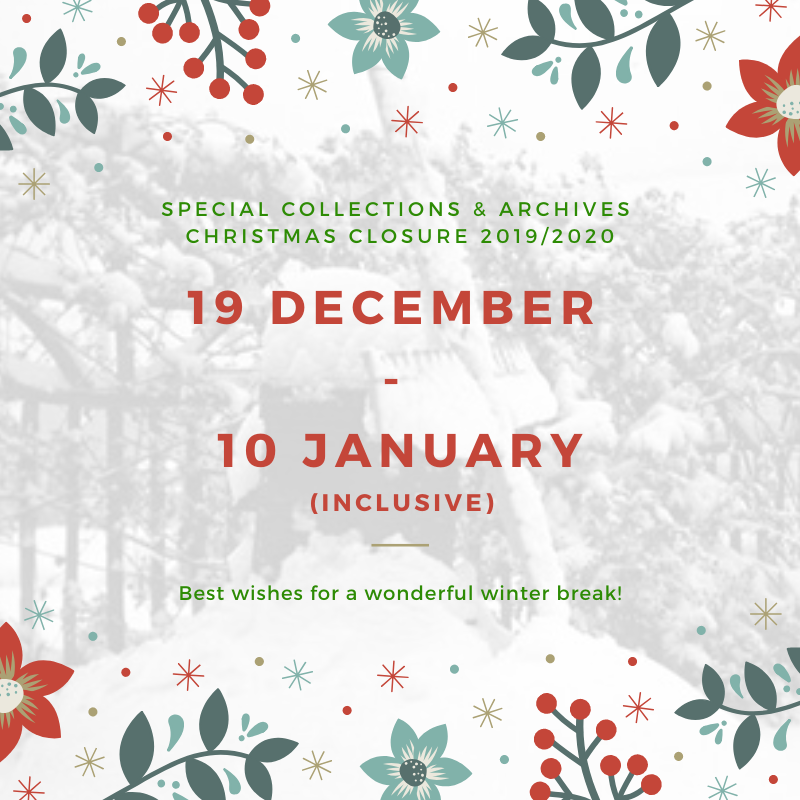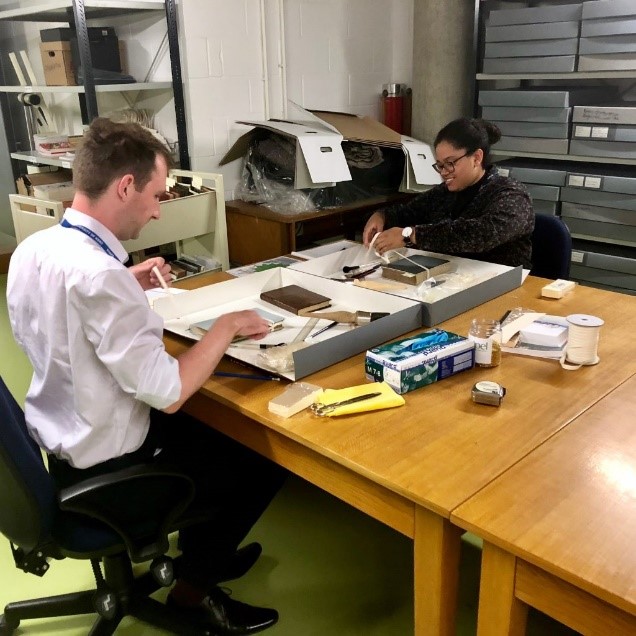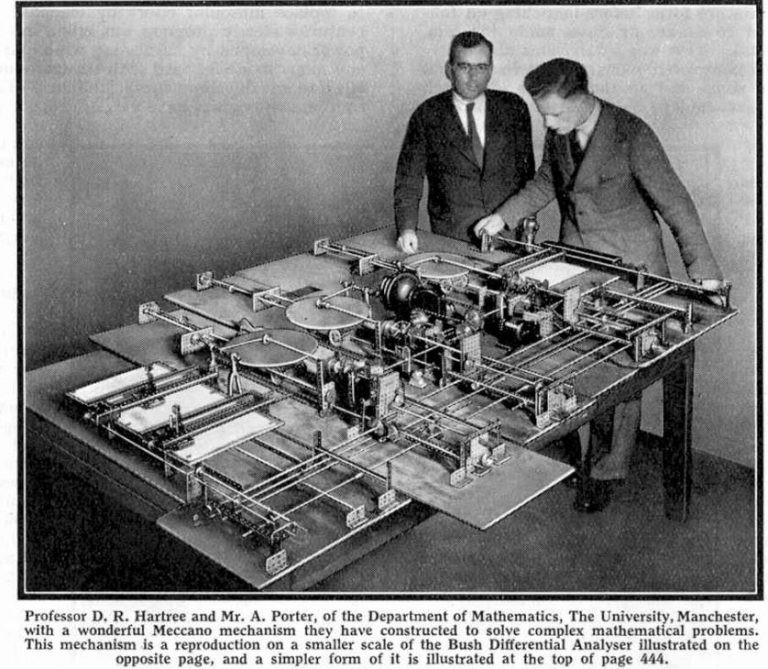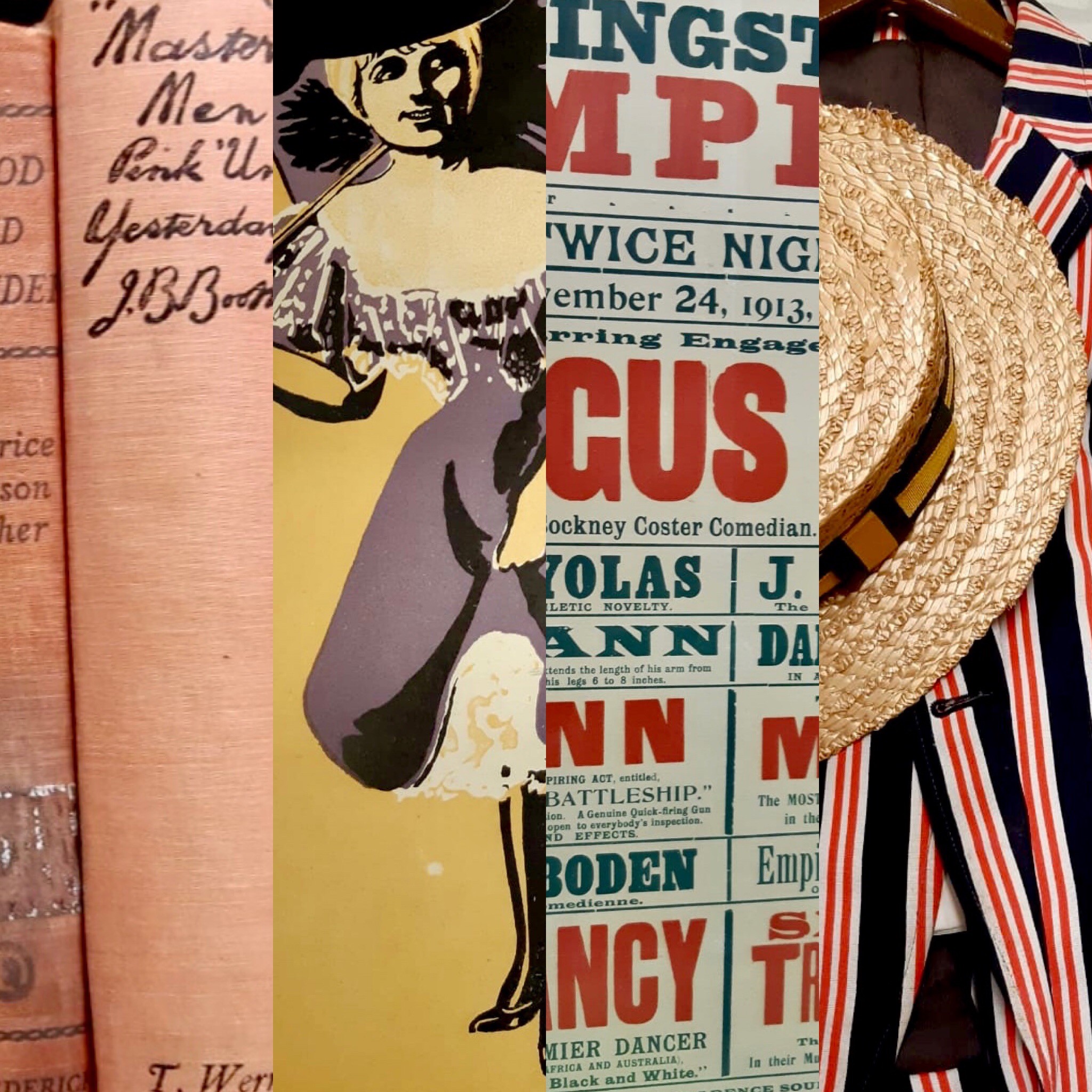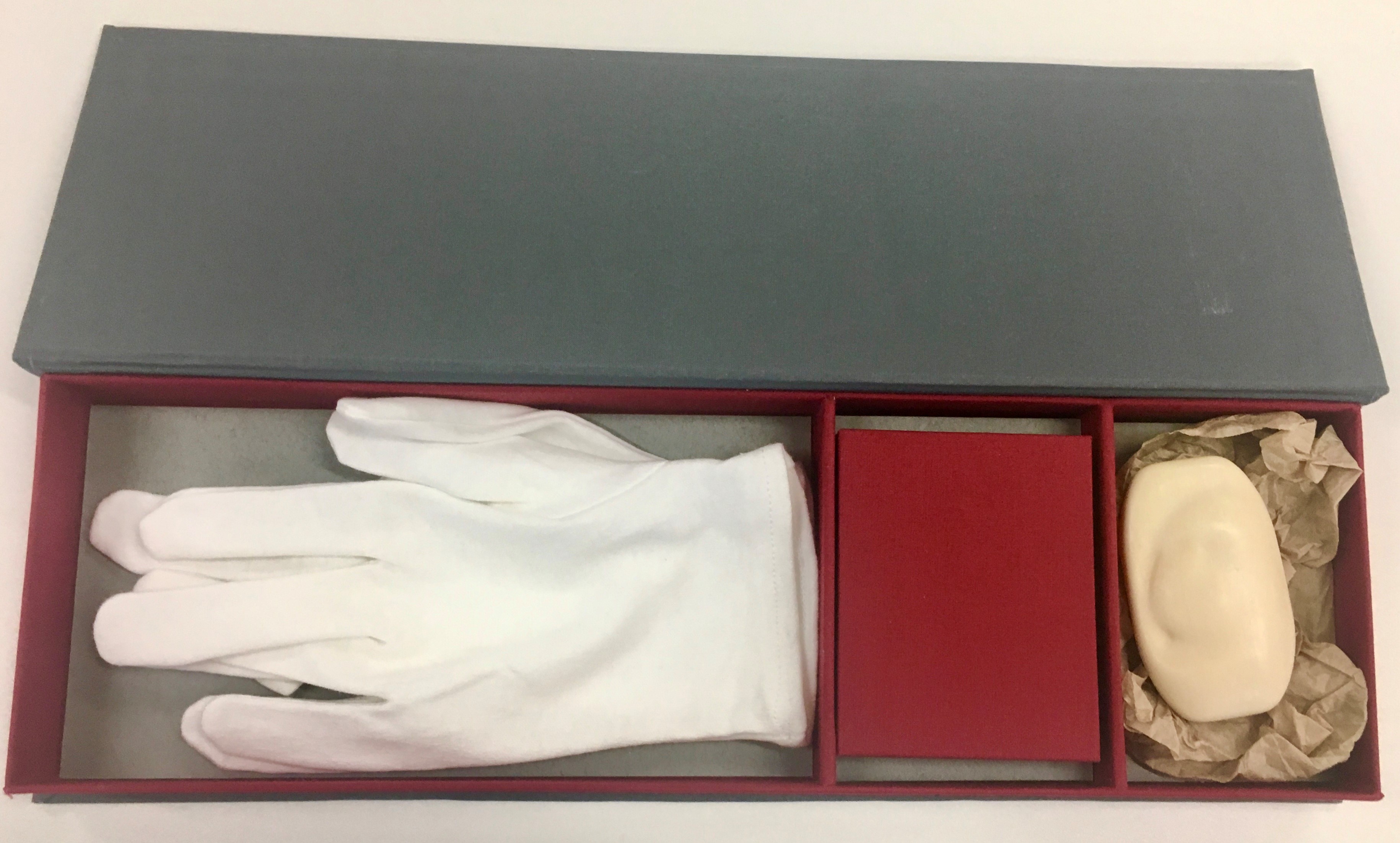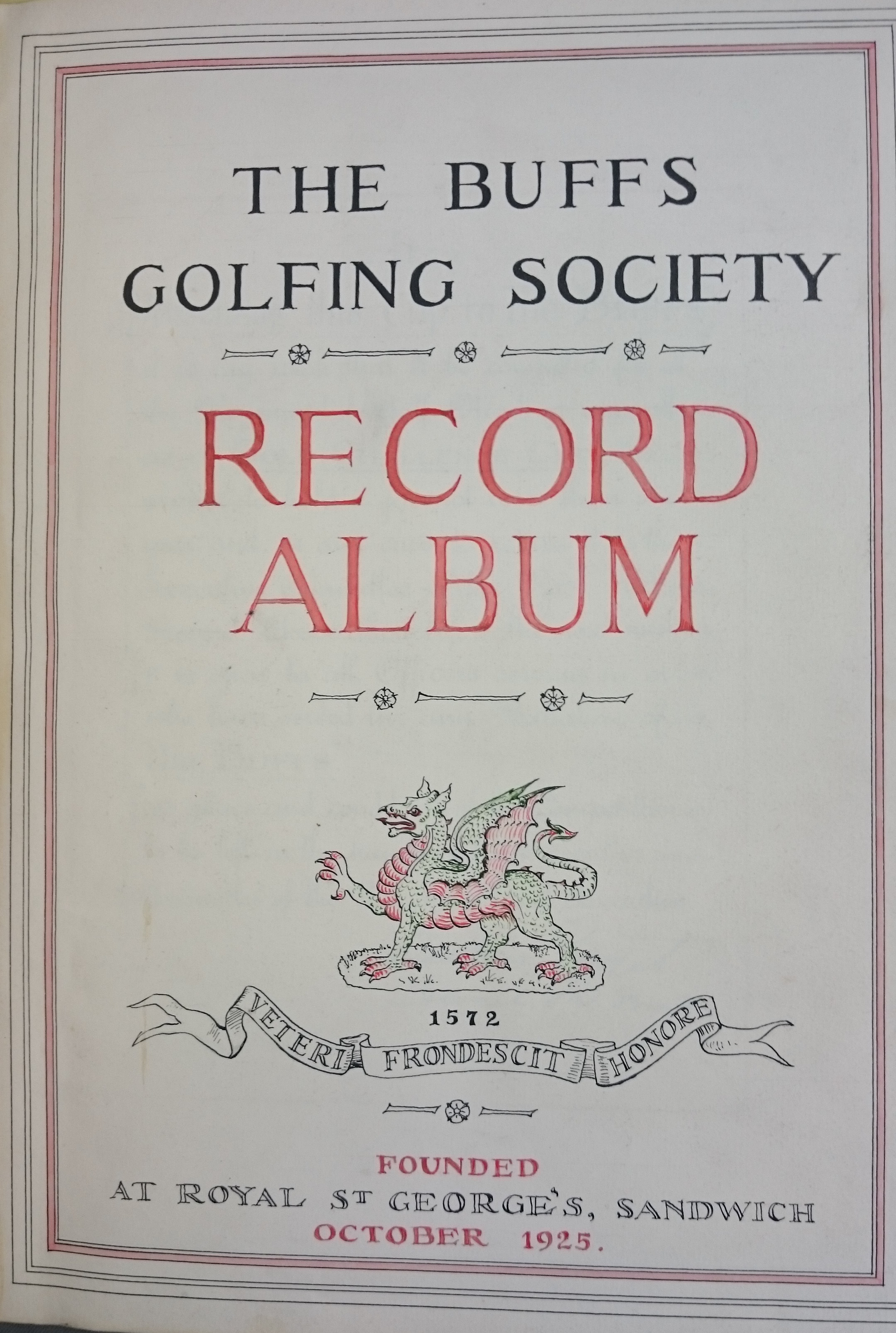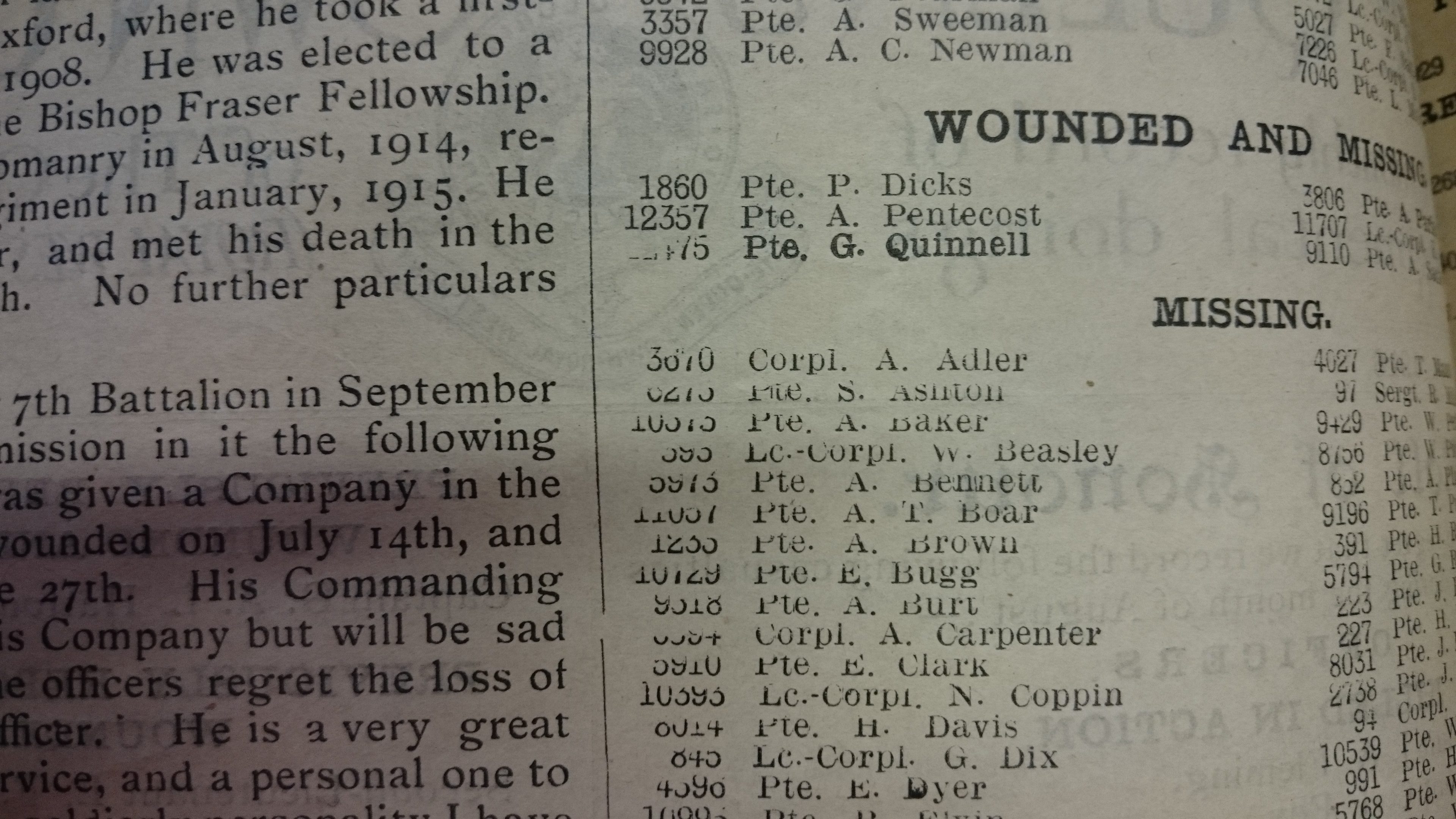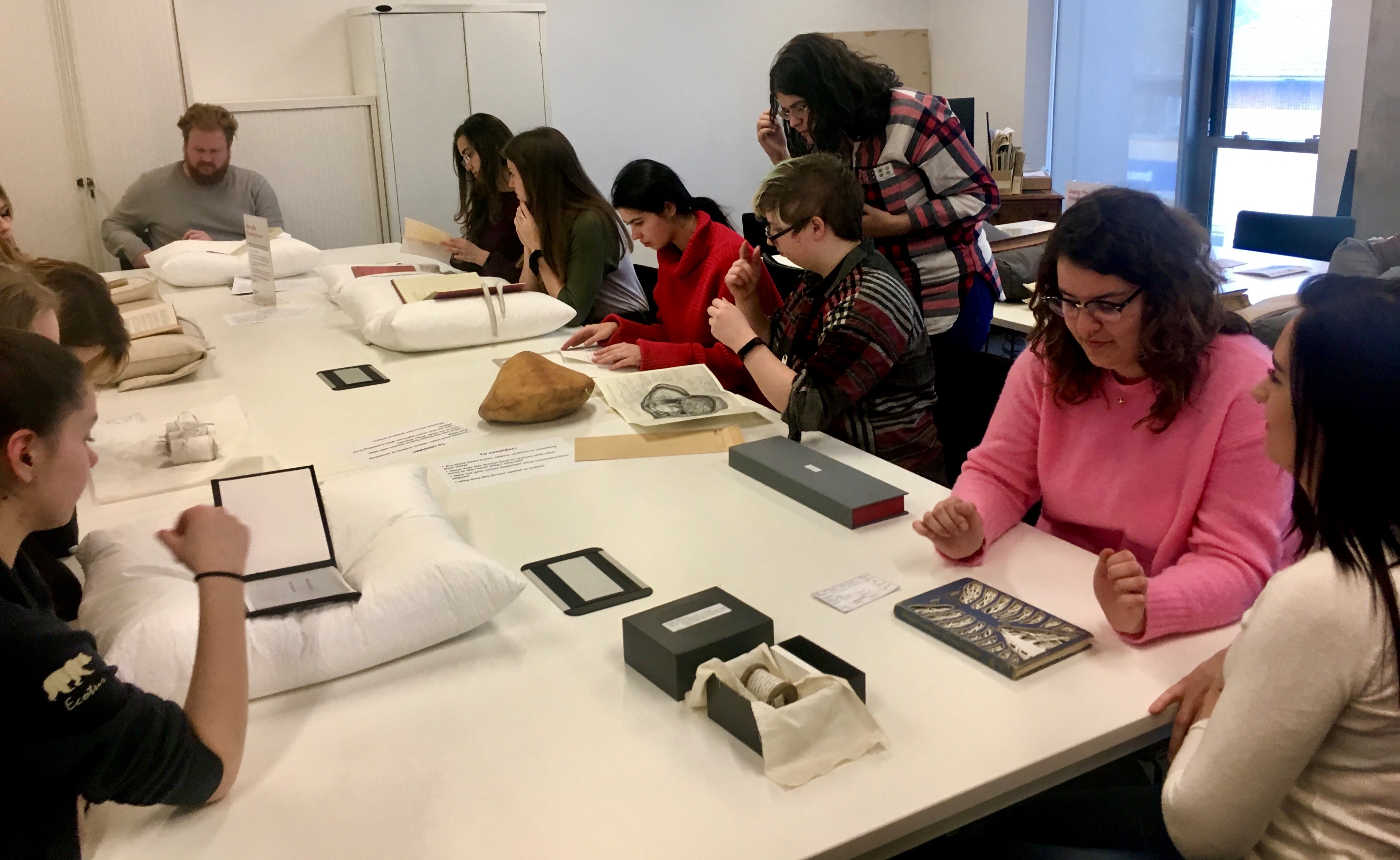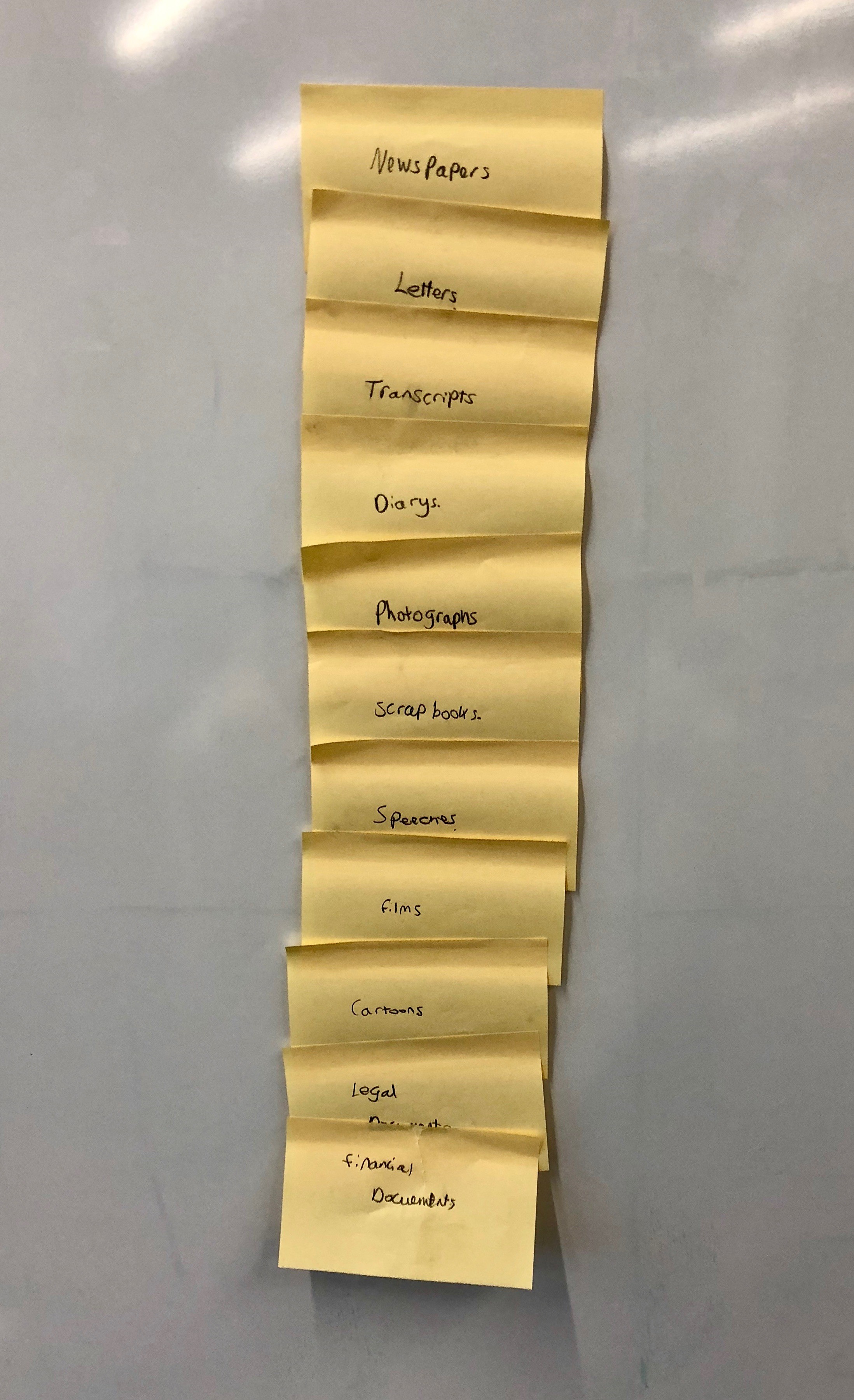As once again we enter the season of festive goodwill and sparkling lights, the SC&A team are preparing for the winter break and the new decade – but not without a good look back at our favourite memories of the year. As ever, we’ve asked everyone across our team for their highlights and they’re curated for you below:
Karen (Special Collections & Archives Manager): “It’s hard to believe we have reached the end of 2019 already. This year has been a whirlwind of exciting activity in Special Collections & Archives (SC&A). In March we welcomed our new project archivist Beth, who has joined the team to help develop our latest archive. See Beth’s post below to read more about it. We said to goodbye to Elspeth, our Digital Archivist, in September and welcomed Clair to the team soon after.
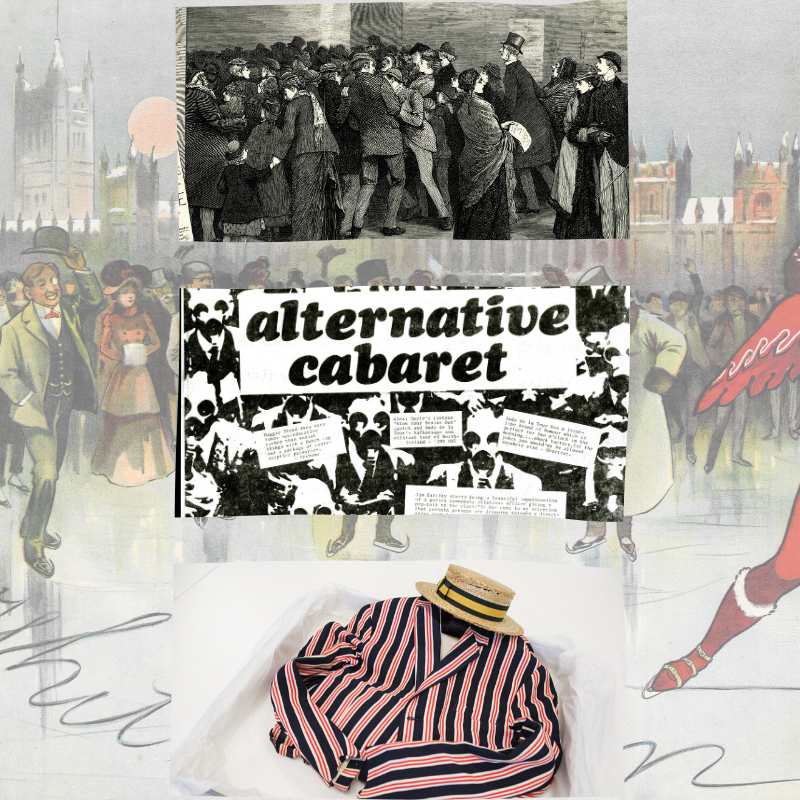
Pantomime, music hall and stand-up comedy all in one blog!
The Templeman Gallery space has hosted some amazing exhibitions throughout the year. In May we worked with Olly Double to mount ‘Alternative Comedy Now’, an exhibition celebrating 40 years since the arrival of alternative comedy. We displayed some fabulous items from the British Stand-Up Comedy Archive. ‘Keep Smiling Through: Humour and the Second World War’ was an exhibition showcasing items from the British Cartoon Archive. It certainly kept visitors entertained. We are ending the year with a double exhibition showcasing material created from projects we were involved with. Firstly ‘Diaries of the Here and Now’ in which people were asked to create a diary of the 11th November 2018, 100 years after the end of the First World War. Secondly we have’ Radical Roots and Dangerous Ideas’ created as part of the 50th anniversary since Gulbenkian was opened – see Tom’s post below. They will be up until the end of January 2020 so do pop in and have a look if you are passing.
We’ve made lots of new friends this year – including our four bursary interns and a whole host of new volunteers. The involvement of all these people really does help us to progress the work on our collections and enables us to make even more of our material available to our users. Clair and I attended the Comic Forum in Leeds, taking items from our cartoon collection to their market place event. This has led to some new links with other Universities and we hope to share more about this next year.

Clair (Digital Archivist): “2019 has been the year that I had the fantastic opportunity and privilege of joining the Special Collections & Archives team on a permanent basis.
Personally it’s been a bit of a whirlwind year, with lots of professional development alongside new challenges and exciting opportunities. One particular highlight for me was our Hands-on History event in June. This event saw us welcoming ten volunteers in to special Collections for a two week period to learn some archives and cataloguing skills, and to work on the Max Tyler Music Hall collection.
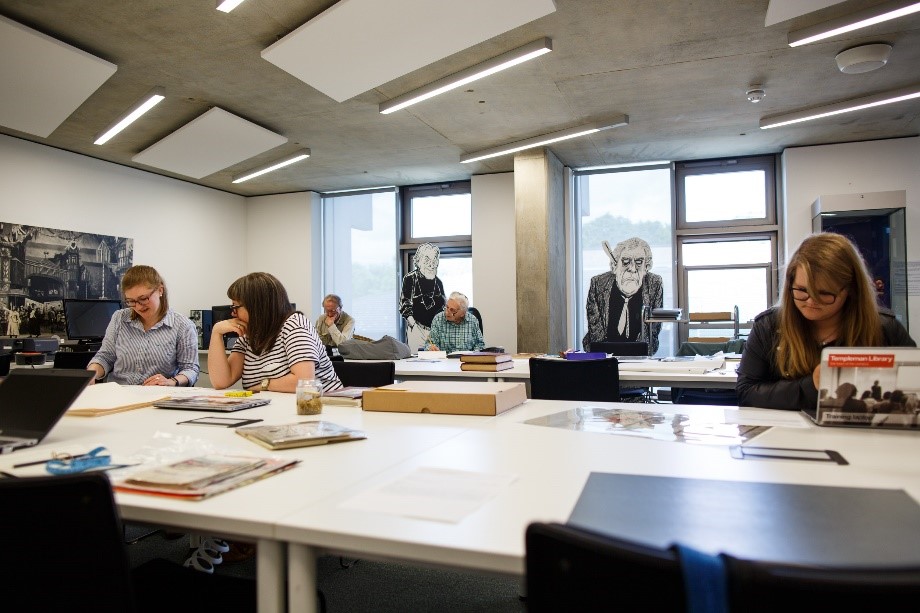
Volunteers working on our Music Hall collection
The first week focussed on the team sharing expertise and experiences with the volunteers in the form of presentations and workshops, whilst the second week was very much hands-on with the volunteers cleaning, repackaging and describing materials from the collection. This included music hall ephemera such as posters and programmes, Max’s research notes, photographs, musical and lyrical songsheets, audio cassettes and even Max’s suit and straw hat!
It was a really positive and productive week with the volunteers producing a total of 291 catalogue records, which is a testament to how dedicated and proactive the group was. It was an absolute pleasure to have them working with us, and we’re lucky enough to still have some of the group volunteering with us on an ongoing basis.
Another exciting project that I’ve been involved with this year is the return of the Beaverbrook Cartoon Collection to the University of Kent.
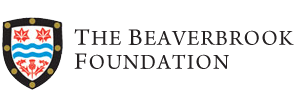
This cartoon collection holds what is widely regarded as some of the most important British political cartoons from the twentieth century. It features work by artists David Low, Victor Weisz (‘Vicky’), Michael Cummings and Sidney Strube.
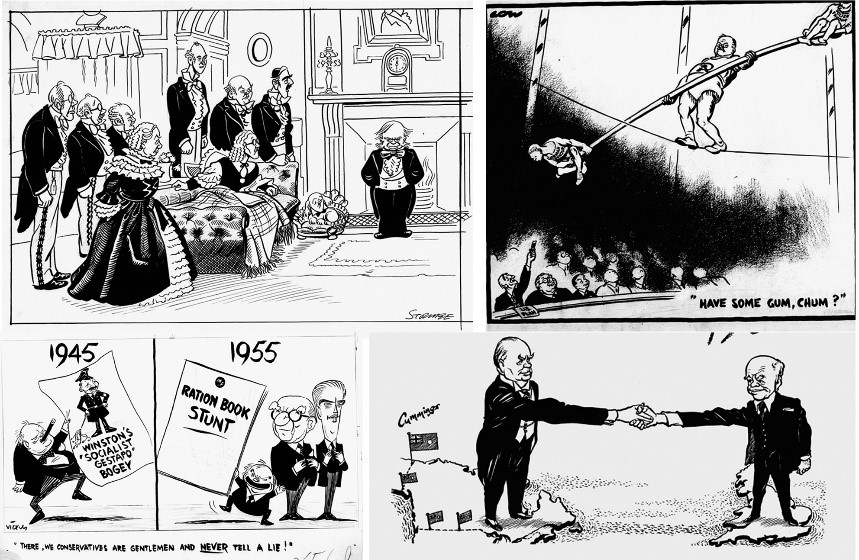
Selection of cartoons found in the Beaverbrook Collection
The collection has been beautifully repackaged by the Beaverbrook Foundation and they have now loaned the artworks back to us so that they can be made available for teaching and research. Although the artwork can already be found on our British Cartoon Archive catalogue, we will be re-digitising the entire collection during 2020 to a high archival standard.
It’s a really exciting time for the Special Collections team with lots of exciting projects in the pipeline… I can’t wait to get stuck in in 2020!!!”

Jennie (Library Assistant, Digital Curation & Metadata): “This year I’ve really enjoyed working to add two collections to our catalogue – the Max Tyler Collection and the Peter Baldwin Collection.
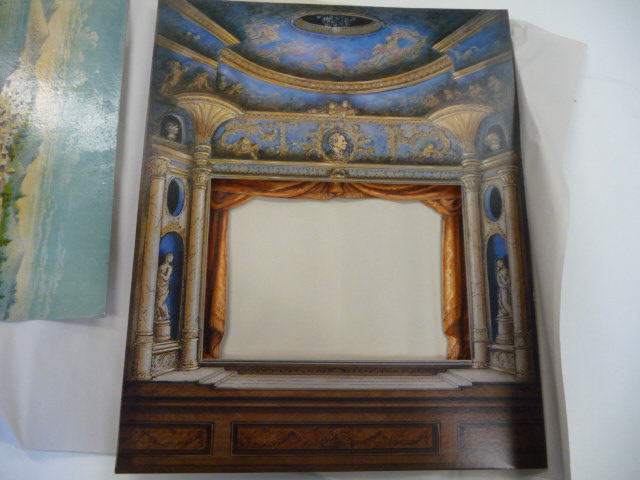
One of the toy theatres in the Peter Baldwin collection undergoing preservation
Both archives are related to theatre, albeit toy theatres in the case of Peter Baldwin! I’m looking forward to our first request for these items to be brought up to the reading room for consultation – especially some of the scenery and figures for Peter Baldwin’s toy theatres. Describing them for the catalogue has been a bit of a challenge, but it is exactly the sort of thing I enjoy and I’m sure that 2020 will bring even more of it!”

Jo (Senior Library Assistant, Special Collections & Archives): “Since September 2018 we’ve been working regularly with sixth form students at Simon Langton Boys School. Under the supervision of their History teachers they’ve been coming up weekly to research the life of Hewlett Johnson, better known as the ‘Red Dean’ of Canterbury Cathedral due to his socialist views. As Hewlett was Dean from 1931 – 1963 he was well connected with hugely influential political figures and thus his archive is a fantastic snapshot of 20th century society.

Dean Hewlett Johnson
It’s been a real joy to see students develop their archival research skills across the year – many of the 2018/2019 cohort are now applying to read History at university which has in part been decided by their visiting us. The 2019/2020 cohort, having completed a training day about how to use archives, are now fully immersing themselves in the collection and are asking so many great questions along the way.
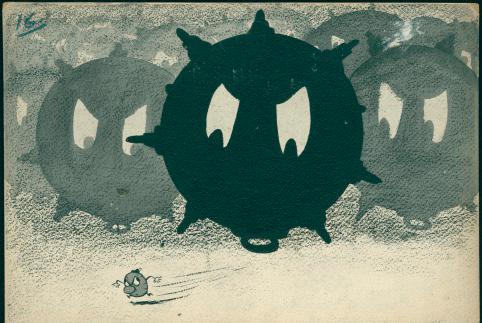
Artwork by Carl Giles for the Ministry of Information film ‘The Grenade’
My other highlight of the year was working with our two wonderful interns, Thomas and Nicola, to develop an exhibition exploring humour and the Second World War. This was a great chance to explore our British Cartoon Archive in a lot of depth; Thomas and Nicola established some great themes which allowed the exhibition to discuss political cartooning trends from 1914 to the present day. My favourite part of the exhibition was how Alex, our Digitisation Assistant, transferred two animations from VHS onto DVD: the films were created by cartoonist Carl Giles for the Ministry of Information during the war. They’re really funny sequences and added a lot of atmosphere to the exhibition.”

Beth (Project Archivist for the UK Philanthropy Archive): “The UK Philanthropy Archive is a new project to identify, collect and preserve archives that record the activities of philanthropists, philanthropic trusts and foundations, networks and other related organisations. These archives are important and are an essential component in supporting research in the history and current practice of UK philanthropy and charitable giving. Our aim is that the material in the archive will represent the history, experiences and perspectives of philanthropists, trusts and foundations and their impact on the UK and globally, and will form an important and well-used research resource, and a tool for engaging more people in philanthropy.
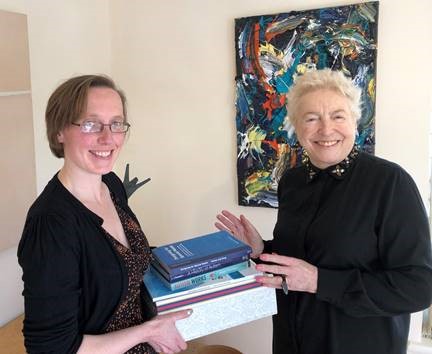
Beth and Dame Stephanie passing on the first items from the Shirley Foundation Collection
We are fortunate to be supported in this project by Dame Stephanie Shirley and the Shirley Foundation – the papers of which also form our founding collection. Dame Stephanie is a tech entrepreneur and philanthropist who focussed her giving on women in tech, IT projects, and autism research and education. One of the highlights of the year was our first trip to meet Dame Stephanie and talk about her collection. This was quickly followed by receiving the first deposit of material including the project files with details of all the projects supported by the Shirley Foundation over its lifetime. This collection is now being catalogued and should be available for research early in 2020. We are also fortunate to have the philanthropic papers of Amanda Sebestyen, a journalist, activist and feminist interested in human rights, women and social justice. This interesting collection is also being catalogued ready for 2020. In the first year of the project we have been focussing on planning and developing contacts to encourage new donations – and we are delighted that this is now bearing fruit with negotiations underway with several trusts and foundations about their archives. Watch this space for more about this in the new year!

Some of the items in the Shirley Foundation archives
We have planned a seminar event about archives on philanthropy to mark the end of the first year of the project and to officially launch the UK Philanthropy Archive. This will be followed by a wine reception and our inaugural Shirley Lecture – to be delivered by Dame Stephanie Shirley. This will be a fantastic event on Wednesday 11th March and we are really looking forward to welcoming people to the library to learn more about archives, philanthropy, and the life experiences of Dame Stephanie.
Another highlight for the project has been in developing our approach to collecting to ensure that the UK Philanthropy Archive reflects the variety and diversity of the philanthropy sector as a whole – including both the activities and perspectives of philanthropists and grant-givers, but also the impact that funding has had on grant recipients. We believe that collecting the records of some of the organisations and initiatives that have been supported by philanthropists represented in our collections will provide a more comprehensive picture of grant funding and philanthropic practice in the UK. We are very excited by the possibilities of this approach and we look forward to seeing how the collections develop as a result.
It has been a fantastic experience working in Special Collections & Archives so far – the collections are brilliant and have so much potential, the special collections team are wonderful and supportive – and I can’t wait to see what 2020 brings.”

Rachel (Liaison Librarian for the Arts and Humanities): “I was involved in the Hands on History event in June and talked about finding aids and online resources with a particular focus on the Gale Newsvault.
My daughter came to the library for her school Year 9 Welcome to Work Day in October and gained a valuable insight into the work we do as well as into the world of work. She particularly enjoyed her introduction to Special Collections and Archives.
Special Collections and Archives supported an ‘ArtsBites’ event in the library in November celebrating the academic output of the School of Arts, with a bookpod and accompanying talk by Dr Sophie Quirk, a drama lecturer in School of Arts.
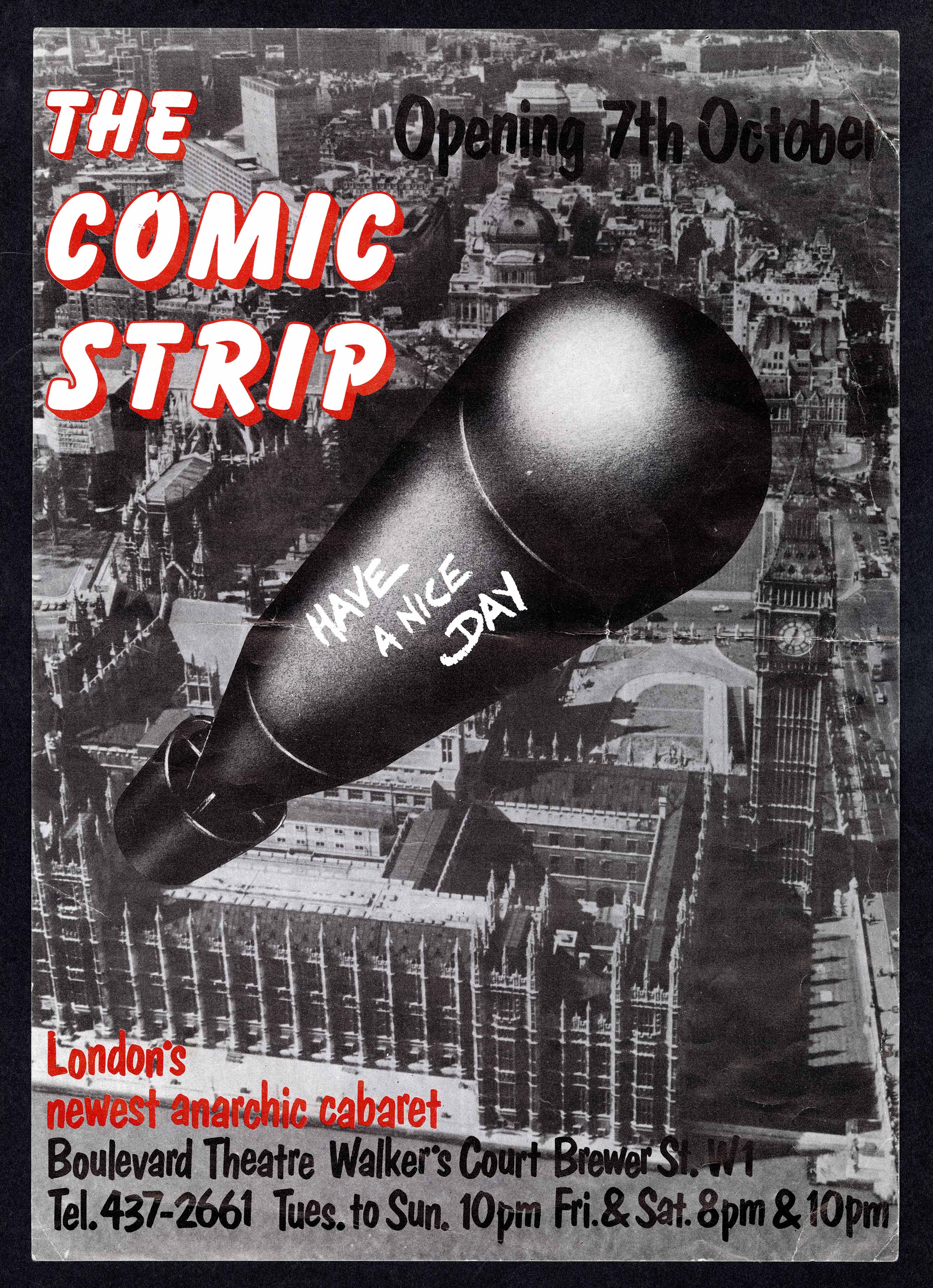
Poster, 1980. Originally a venue, The Comic Strip collective quickly embarked on a national tour, released an LP and produced TV series “The Comic Strip Presents…”
Materials from the Stand-Up Comedy Archive were displayed alongside the bookpod and talk ‘Why Stand-Up Matters: Comedy and its Politics’ .”

Tom (University Archivist): “My highlight of 2019 was working with the Gulbenkian to help celebrate their 50th anniversary with their National Lottery Heritage Fund project ‘Radical Roots and Dangerous Ideas’. This saw us delivering a number of workshops using the University and Gulbenkian archives to help set the context for the establishment of the Gulbenkian and focusing on its place in the new university and the radical student politics of the time. Groups from the various youth groups of the Gulbenkian came to look at architectural plans, production files and posters, photographs, prospectuses and student publications and newspapers amongst other archive items. It was great to have a younger audience using our collections and to see how they responded to the archives. In addition to the workshops, the project generated an exhibition curated by ART31 and displayed Colyer-Fergusson, Beaney House of Art and Knowledge and the Templeman Gallery. We also recruited a team of volunteers and an intern to help repackage and enhance the catalogue records for the production files from the Gulbenkian collection (by the end of the project the first 20 years will be completed), improving the accessibility and ensuring the preservation of this collection.
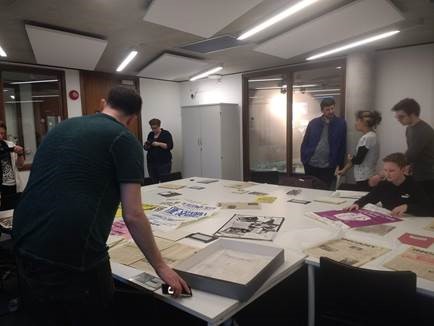
Youth groups exploring the Gulbenkian archive
One of the most exciting things about the project was that it generated new content for the Gulbenkian Archive, including oral histories with Kent staff and alumni from the late 1960s and early 1970s on their memories of the early years of the Gulbenkian. It also resulted in a zine containing original creative writing inspired by the collections, a copy of which will in turn become part of the archive.”
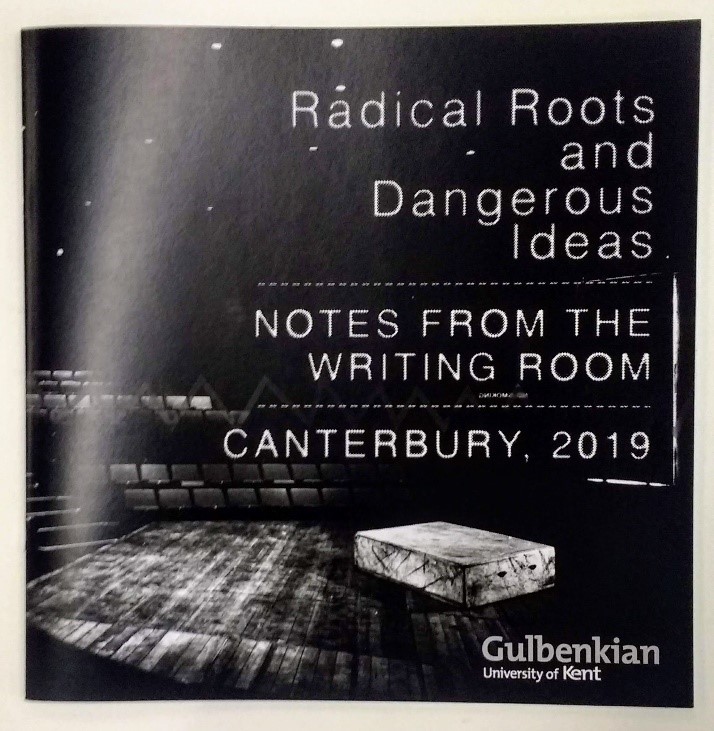
Zine from the Radical Roots project
See this blog post for more on the Gulbenkian at 50: https://blogs.kent.ac.uk/specialcollections/2019/12/11/radical-roots-and-dangerous-ideas-archives-and-gulbenkians-heritage/

Alex (Digital Imaging Assistant): “The year 2019 began with a rescue mission – a collection of VHS Videotapes donated to the University by the late comedian and activist: Jeremy Hardy. To ensure that the British Stand Up Comedy Archive had digital copies of this material before the magnetic VHS tapes suffered any further deterioration I duplicated the relevant content to digital file.

Jeremy Hardy

Jeremy Hardy
Amongst the various sketches and stand up sets was a (possibly unique) American recording of a fresh faced Jeremy at the famous New York comedy club; “Carolines”.
From Spring 2019 I began work on archival digitisation of the more than 800 analogue recordings of Open Lectures given at the University over the past 50 years. These recordings feature many well know speakers and experts in their field. I have already unearthed many highlights in these recordings. Topics have included the truth behind the “Bridge over the river Kwai” myth by a soldier who lived through the experience and “Stonehenge Decoded” by a noted archaeoastronomer.
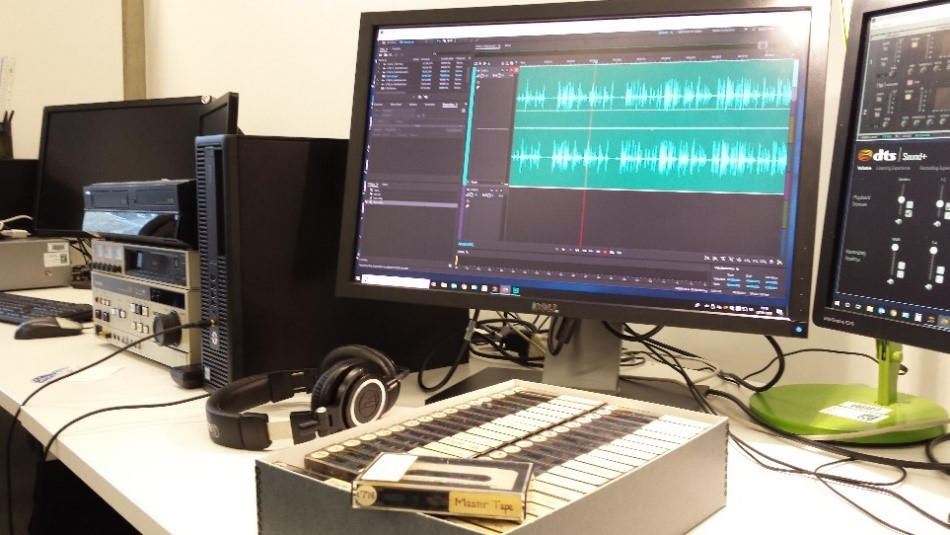
Our audiovisual digitisation equipment
From the content I’ve digitised so far I’m sure that there will be many more gems as I work my way through this collection in 2020!”
On behalf of the whole SC&A team, we hope you have a lovely Christmas break and we’ll see you in 2020! The Reading Room reopens on Monday 13th January.

